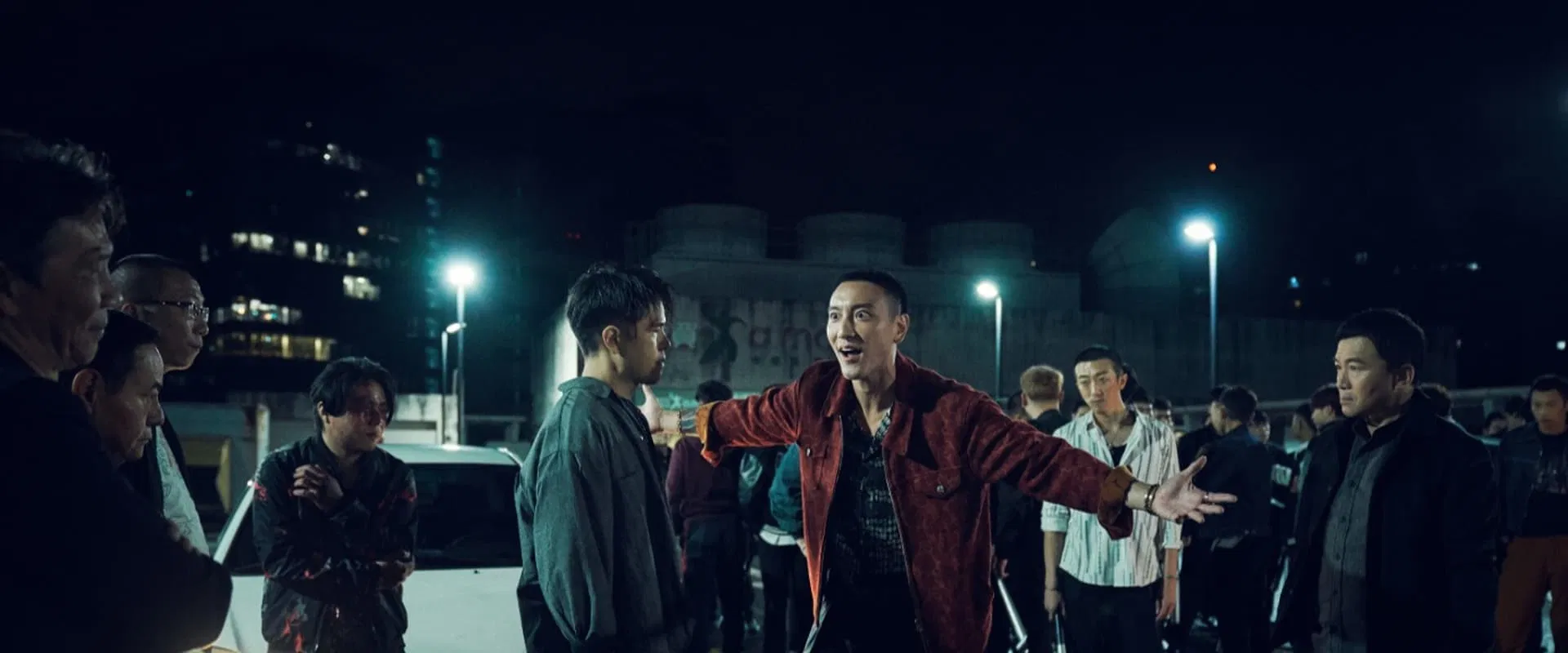There is a peculiar kind of pride to be found in a series that wears its lineage on its sleeve, and with Gatao: Like Father Like Son, we have reached the origin myth: the gangster saga’s answer to the Book of Genesis. Ray Jiang’s fourth foray into the Gatao universe is not so much a mere prequel as a ritual exhumation, painstakingly unearthing the sturdy bones of grudge, loyalty, and ambition that have propped up the franchise through three films already.
What’s striking is the seriousness of purpose. The series has always trafficked in the power territoriality of Taipei’s criminal clans—the North Fort Five Tigers, Daqiaotou, and the Mongrels—yet here, the names acquire weight through the granularity of lived experience. Michael (Sunny Wang) is introduced not just as a preening prince, but as a man almost pathologically torn between loyalty and an itch for self-invention—his pivot to America freshly sharp, not yet dulled by years of gunmetal fatalism. The plotting is both meticulous and a little too proud of its mysteries (the Scorpion subplot is dangled like a promise rather than an actual threat), but I almost forgive it; these films have always favored the withheld punch over the melodramatic knockout.
Sunny Wang’s Michael is a new breed of Gatao antihero—he possesses the sullen arrogance you expect from a gangland heir, but there’s a nervous flicker beneath: a sense that every confident gesture costs him double in internal currency. Wang Shih-hsien’s Ren has the weary gravitas of a man who’s survived more backroom powwows than anyone should. Shih Ming-shuai’s Meng and Harry Chang’s Scorpion prove ideal foils, orbiting Michael’s uncertainty with a kind of earned impatience. The real revelation, though, is the chemistry among the cast: here, brotherhood is as much a curse as a comfort, and loyalty is paid, not promised.
Ray Jiang, who clearly wants this installment to look like a memory flickering on the edge of nightmare, tightens the aesthetic screws. Gone are the sometimes ramshackle frames of the first entries; instead, we’re treated to precise lighting, tight close-ups, selective color grading, and an energy that never slips into MTV-bravado. The stylization isn’t ornamental—it’s functional, translating the characters’ claustrophobia and paranoia into vivid, kinetic space. These flourishes don’t just show off technical polish, they heighten the perennial Gatao mood: brotherhood and brutality in equal measure.
But Jiang doesn’t let visual style cannibalize substance. The script is lean, clipped, and mostly untouched by the hamminess that can drag gangster fare into self-parody. There’s a naturalistic rhythm to the dialogue, a friction of personalities that resists comic-book tropes (thank the gods, nobody here seems in a hurry to become a John Woo archetype). Even the inevitable melodrama glides by on the back of well-paced scenes, rather than being shoved in our faces like a pile of spent shell casings.
Like Father Like Son is, above all, a film obsessed with inheritance—the debts owed, the impossible dreams, the possibility (or illusion) of reinvention. Michael’s departure for America, played not as an escape but as an unspeakable failure, is the film’s true center. Jiang and his writers know that gangster movies are at heart about the cyclical curse of men who mistake blood ties for destiny. The film finds a bittersweet echo in contemporary Taiwan, where questions of loyalty and identity pulse underneath the braggadocio of triads.
In a genre notorious for empty gesturing, Jiang’s latest effort skips the glamour and cuts straight to the gristle. The violence is neither operatic nor gratuitous, but matter-of-fact: the real horror is not the gore, but its banality. There is, finally, a certain sadness running through the bone-deep seriousness with which these men live and die for a chunk of city and the grudges wrapped around its streetlights.
Measured against The Last Stray or Rise of the King, this new installment has the confidence and restraint of a director who now trusts backstory to do the heavy lifting. Jiang has learned to let his characters breathe and bleed before the bullets start flying. If Monga was the genre’s fever dream, Like Father Like Son is the bleary hangover: tough, atmospheric, and haunted by the knowledge that every legacy—even a gangster’s—demands a price.
The film does not so much end as pause, the unresolved Scorpion thread left for the next bloodletting. But in the world of Gatao, perhaps that’s exactly the point—there are no clean getaways, only the slow simmer of revenge and regret.
This is a rare gangster film that refuses to burn itself out on spectacle. Instead, it is content to leave us with an uneasy ache, a lingering aftertaste—the flavor of bad blood, and worse fathers.


